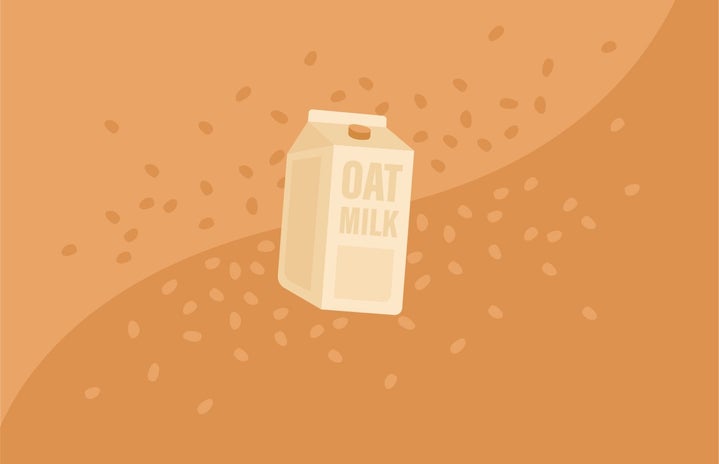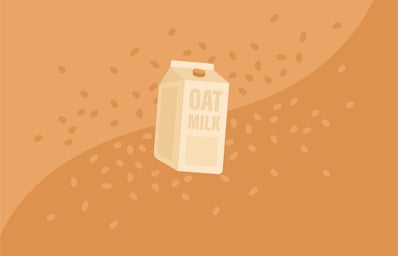If you’re like me, you try to make conscious decisions when it comes to dairy and meat consumption, but you still dabble here and there. I’m not vegan, but I make my efforts where I can afford to. I recently took the Everlywell Food Sensitivity Test and learned that I’m allergic to dairy products, but this didn’t drastically shock my world. While I did grow up on the iconic blue-capped 2% milk, I was never betrothed to it (cheese, on the other hand, will be much more difficult for me to give up).
I haven’t purchased cow milk in years because I made the switch before I ever knew I had an allergy. In my opinion, dairy-free milk tastes the best, and the health benefits of cutting it out of my diet are an added bonus. There’s one downside to switching to any of these milk substitutes: the price. With any dairy-free milk, you’re going to pay an extra dollar or two per gallon. Luckily, as they gain popularity, more brands of alternative milks are popping up, and that means a wider range of prices. So now that you’re considering the switch to dairy-free milk, let’s break down a handful of the options available to you.
- Soy Milk
-
Soy milk was the first dairy alternative I tried. It has a thinner consistency than cow milk, and the nutritional benefits are similar to those of cow milk. Soy milk is a great introduction to dairy alternatives because it’s packed with protein and calcium, and it is easy to find at any grocery store. The vegan drink can be used to enhance your cup of coffee in the morning, as a milk substitute in any recipe or just serve as a thirst quencher when you’re craving a glass of milk. The reason I eventually turned from this option is the flavor, which is fine, but nowhere near the deliciousness of one of my later recommendations.
- Almond Milk
-
First thing’s first: I am no expert on almond milk. I am allergic to almonds, so for obvious reasons, I stay away. However, I have heard only good things about this option, as it’s packed with calcium and good flavor. Almond milk is the answer for those who want a non-dairy option, but aren’t too concerned about the nutrients the milk provides. Unlike its soy competitor, almond milk is not packed with protein. Thus, if you’re searching for a dairy alternative to add to your workout shakes, for instance, be sure to consider this fact before going the almond route. Still, this second option seems to remain the #1 alternative for many.
- Oat Milk
-
Oat milk is my favorite, for a few reasons: It tastes the best, it’s packed with calcium and protein due to its base ingredient (oats) and it has proven to be the easiest to use in cooking. Oat milk is creamy and rich in flavor— the first time I tried oat milk was in a latte that I still dream about… I always have a gallon in my fridge (my favorite brand is Oatly), and sometimes I stock up on oat milk creamer as well. I simply can not recommend this alternative enough.
People cut dairy out of their diet for many different reasons. Perhaps you find that dairy causes your acne to flare up, or you feel particularly bloated after your morning cereal. You may try out one of these options on your next grocery trip. The best part is, I merely skimmed the surface of the options available to us these days. Once you find the alternative that works best for your lifestyle, it’ll be difficult to return to that blue cap.


